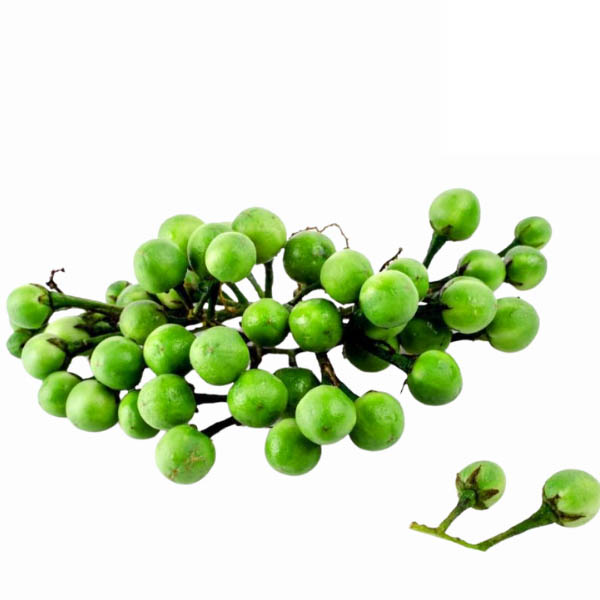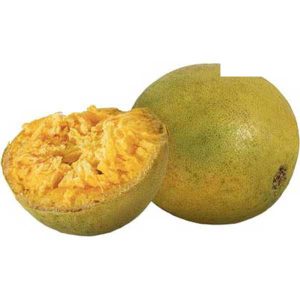Description
Local
Dry and intermediate zone
Africa
Bitter taste
Thibbatu is great for treating an array of diseases related to the skin, eyes, ears, stomach, liver and heart. It also helps combat venomous stings/bites, Haemorrhoids, Arthritis, Mucosal diseases, Rheumatism and Naso-pharyngeal diseases.
Wild eggplant grows in clusters on branched vines with heavily lobed leafy foliage. Its foliage a signal to its wild nature: thorny and prickly, defending against natural predators. The fruit is considered the only edible part of the plant.
Add a dish of Thibbatu Curry to your next meal. Wash and boil the thibbatu with enough water to cover them. Crush them with a spoon to remove the seeds. Heat oil. Fry the curry leaves and onion for two minutes. Add the rest of the ingredients and bring to a boil. Add thibbatu and simmer for 10 minutes, and voila.
The Fried Thibbatu with Katta Dry Fish is another local classic. Add little bit of lime juice to katta pieces and deep fry for 2 minutes. Keep aside. Now put oil in to a fry pan and heat. When oil is ready, add mustard seeds, cumin seeds, cinnamon, garlic, ginger, lemon grass, rampei, and curry leaves. When it turns to golden colour add thibbatu, and onions and chilli pieces. Fry the mixture for about 10 minutes in low heat. Stir well. Ensure the thibbatu is cooked well. Finally, throw in the katta pieces and lime juice. Add salt right after you add katta pieces because dry fish has plenty of salt. Stir well. Yes, your dish ready to delight your guests.


